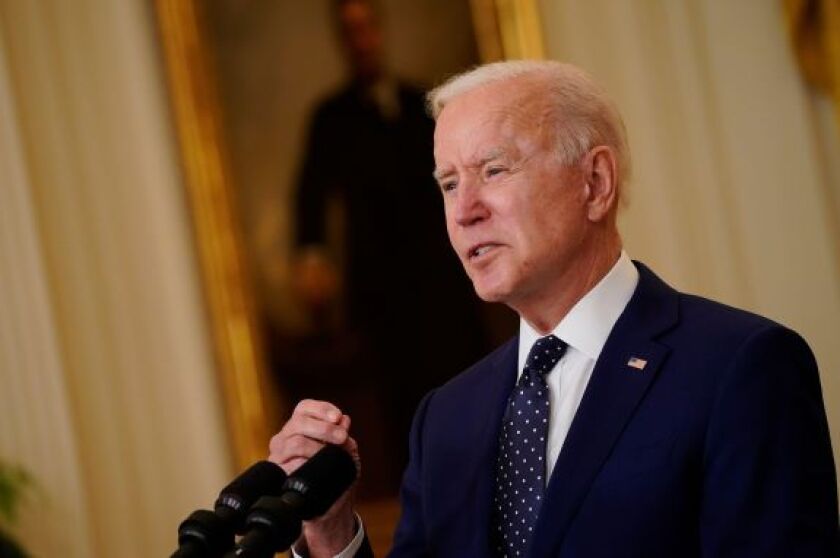As Donald Trump’s replacement, Joe Biden was always going to have to take a firm line on Russia. The first rumblings of that came this week, with new sanctions which included prohibiting US firms from buying Russian rouble sovereign debt in the primary market.
The new sanctions are certainly an escalation in the US's attempts to curtail Russia's more malign activities on the international stage. However, since the sanctions do nothing to hamper the energy and mineral firms from which Russia brings in its wealth, some believe they are just another toothless attempt at sabre-rattling — too weak to really hurt Russia, but enough perhaps to provoke Russian president Vladimir Putin into aggression against the US or its allies, perhaps in Ukraine.
The US media is already predicting more serious sanctions will be needed, which would severely damage the prospects of Russian capital markets transactions. The Washington Post editorial board is concerned.
With companies raising money left, right and centre in the name of pandemic bargain basement M&A, corporate valuation expert Aswath Damodaran, who is professor of finance at NYU's Stern School of Business, has a pretty blunt message for those companies considering it: "Don't do it."
Damodaran believes there are only a few ways for companies to achieve genuine growth and hoovering up other companies isn't one of them. In this lecture delivered to the CFA Institute and dragged up from the archives, he explains why.
What is the more reliable event to occur: Germany making a Bund coupon payment or one of its political figure worrying in public about debt levels in the middle of a crisis? Former German finance minister, Woflgang Schäuble, on Friday took to Project Syndicate to warn that governments must maintain budget discipline after the swell of borrowing last year.
Germany’s historical fear of the Weimar Republic’s hyperinflation has become almost a cultural phobia, and the nation is itching to reinstate its debt brake just as soon as the crisis is over. Don’t get attached to that extra Bund supply.
As the UK begins to move out of lockdown, the true costs of the measures we have been forced to adopt are starting to become clear. Lockdowns were a vital tool in combatting the spread of the coronavirus but the consequences for those relying on home-based medical care were catastrophic. Carl Heneghan, Oxford professor of evidence-based medicine begins the work of counting the cost in The hidden death toll of lockdown in the Spectator.
Finally, with the Federal Reserve doing everything in its considerable power to protect asset prices, the juggernaut of passive investing seems unlikely to slow down any time soon. Annie Lowrey asks in The Atlantic whether that is Marxist.
The dominance of the passive investing model might be anti-competitive. If 20% or 30% of the US equities market is simply tracking indices, then there is a huge chunk of investors who have no stake in whether one company or another outperforms.

